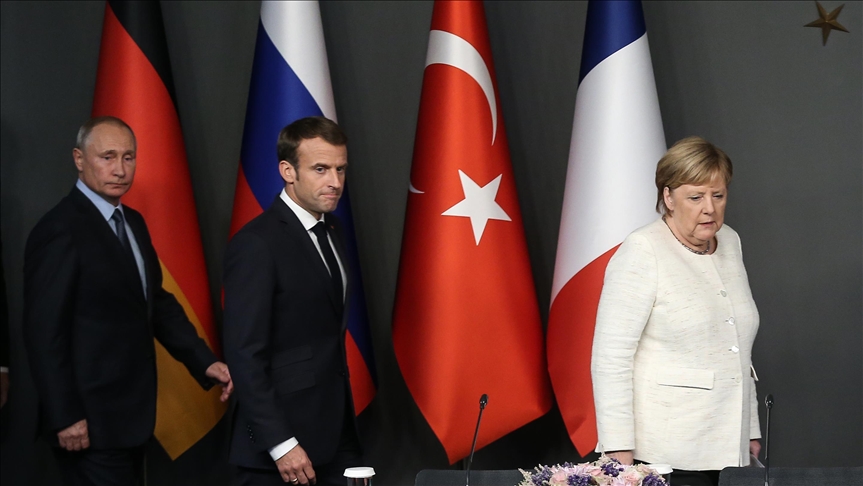
PARIS
The European Union has failed to carve out a common approach in its strategy or proactive political mechanism for dealing with Russia and the Kremlin capitalizes on divergences among the bloc’s member states, analysts said Wednesday on the dynamics between the hostile neighbors.
“Europeans want to change Russian behavior, but there is no political mechanism to initiate this. The Minsk agreement and Normandy format aren’t working, and there is no intention to create another new process through this escalation,” Visne Korkmaz, a professor of International Relations at Nisantasi University, said during a web panel titled “Strained EU-Russian Relations: Business as Usual?” organized by the SETA Foundation for Political, Economic and Social Research, a think tank in Brussels.
Another speaker during the panel, Amanda Paul, a senior policy analyst at the European Policy Centre, agreed that despite tensions prevailing for over a decade, the EU has failed to come up with a united policy against Russia with the rare exception of an agreement on sanctions. Such indifference and divisions within the EU have only emboldened the Kremlin and should be avoided, she added.
“Russia has no intention of changing course and is not interested in building constructive relations with the EU. It doesn’t want to be dictated by the EU, nor does it want to model itself on the European state.”
The panel was held to discuss current EU-Russian relations and interdependency in areas of energy and security amid ongoing tensions over Ukraine and the detention of opposition figure Alexy Navalny.
Korkmaz said the EU's energy equation with Russia was complicated, particularly in regards to the Nord Stream 2 gas pipeline. The European Parliament has continued to protest and the US’s CATSA sanctions are on the table against the project. At the same time, it is also part of the diversification of energy for Europe, she pointed out.
Russia also needs business with Europe for money and access to its market, but on the other hand, it has created an image that Europe should not dare to question its anti-access area denial (A2AD) capabilities in the neighborhood.
“Diplomatically and politically, keeping the balance between the two ends is not an easy job for Moscow, but it has to use it due to its limited capabilities.”
On the strained relations over the Ukraine crisis, Paul said Russian President Vladimir
Putin is projecting that the new crisis is being pushed by the US and Europe.
“Europe’s stand of ‘no business as usual’ has become business as usual with Russians,” she said.
She reminded that before the Ukraine crisis began in 2014, Russia crossed red lines in the 2008 war with Georgia when its tanks came up to the border of Tbilisi. The US and the EU decided to give one last chance for resetting relations, but for Russia, the reset never happened, she added.
Paul noted that the current military buildup at the border with Ukraine, where reportedly 1/10th of Russian troops have set up camps in occupied Crimea, is a worrying situation. However, the chances of Russia launching a full-scale military operation were low, even though its strategy is to provoke Ukraine to justify a military response.
“The EU should have prepared an action plan with the US, UK, and Canada in case of military aggression and escalation,” she said.
Even though the ongoing dialogue between Russia and the EU is the only way forward to try and change the dynamic, this was difficult unless there is a shift from the Russian side.
Anadolu Agency website contains only a portion of the news stories offered to subscribers in the AA News Broadcasting System (HAS), and in summarized form. Please contact us for subscription options.







